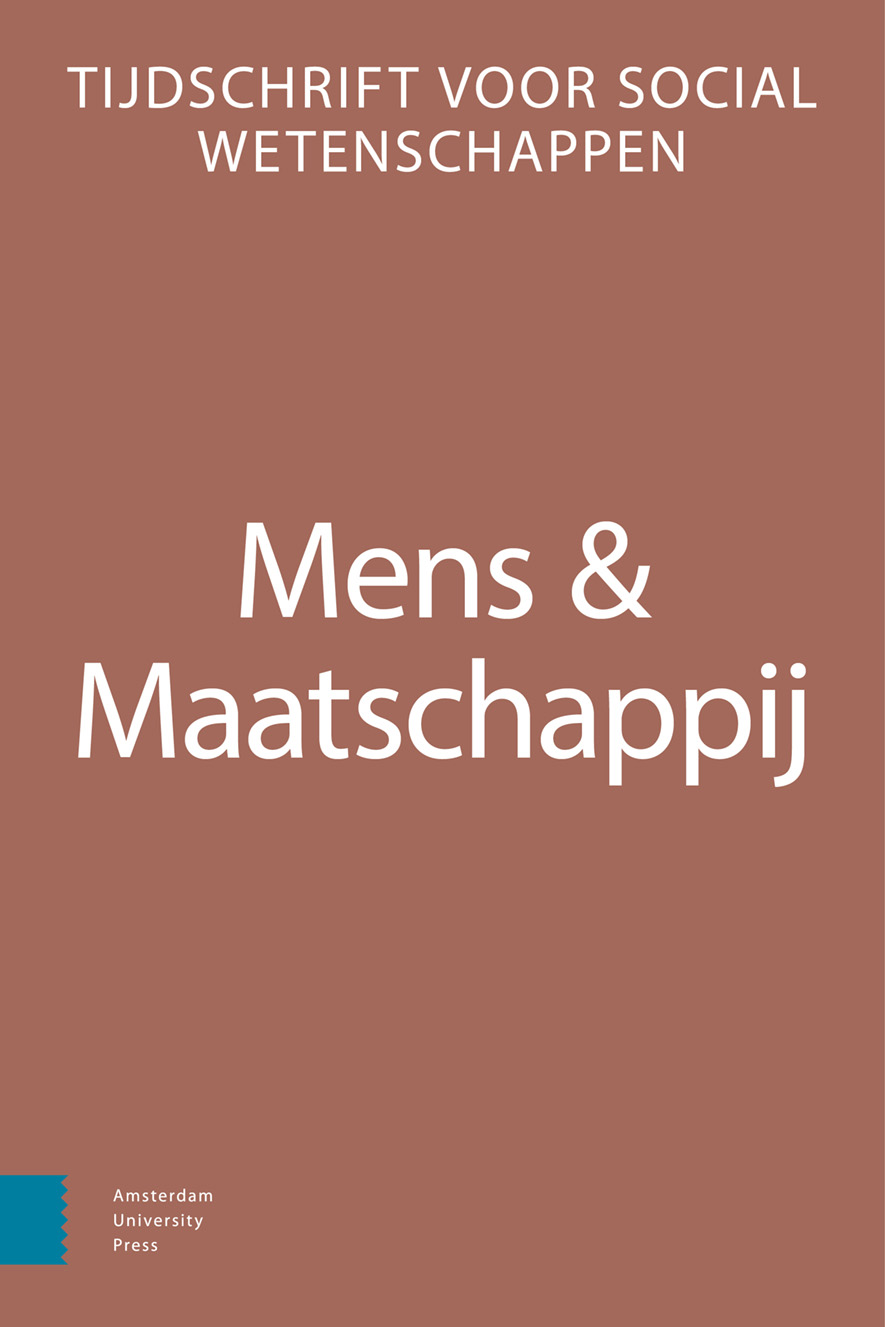- Home
- Publications
- Mens & Maatschappij
- Previous Issues
- Volume 88, Issue 3, 2013
Mens & Maatschappij - Volume 88, Issue 3, 2013
Volume 88, Issue 3, 2013
-
-
Toekomst voor de Nederlandse sociologie
More LessAuthor: Jos Haan, deRuim tien jaar geleden stelden Arie Glebbeek en Henk de Vos (2000) de vraag of de Nederlandse sociologie nog wel een toekomst had. Zij zagen in onder meer de teruglopende studentenaantallen en de afslanking van het aantal universiteiten met een volwaardige sociologie-opleiding een bedreiging van de discipline. Zonder nieuwe aanwas van enige omvang kon de sociologie volgens de twee Groningse sociologen toch niet meer een betekenisvolle discipline zijn. Om die betekenis te hebben moet de sociologie zich aan de ene kant onderscheiden van andere sociaalwetenschappelijke disciplines en aan de andere kant ruimte bieden voor de pluriformiteit die de discipline nu eenmaal eigen is. Een discipline heeft Nachwuchs nodig en de opleidingen spelen hierbij een belangrijke rol. Hoe hebben die zich geweerd tegen de bedreigingen in de afgelopen tien jaar?
-
-
-
Werk, uitkeringen en criminaliteit - Kwetsbare jongeren gevolgd van 18 tot 32 jaar
More LessAuthors: Janna Verbruggen, Robert Apel, Victor Geest, van der & Arjan BloklandThis study examines effects of employment as well as different types of income support on crime, using longitudinal information on a sample of vulnerable men and women (N = 540) who were institutionalized in a Dutch juvenile justice institution in the 1990s. Results show that, although the vast majority of the sample is employed at least once during the observation period, a large number of men and women receive income support at some point during the observational period as well. In addition, the majority of the sample engages in serious criminal behavior in adulthood. Random effects and fixed effects models show that for men, both work and income support are associated with a reduction in the rate of offending. For women, however, those employed show a lower offending rate, while receiving income support, and in particular disability benefits, is associated with an increase in offending. These findings suggest that for men, income from either work or social security can reduce the financial motivation for crime, whereas for women, desistance may primarily result from social control associated with being employed.
-
-
-
Driegeneraties- en tweeoudersvragen over het opleidingsniveau van mannen en vrouwen in Nederland
More LessAuthors: Maarten H.J. Wolbers & Wout C. UlteeThis article estimates for the Netherlands linear regression models for an individual’s level of education by bringing in parental as well as grandparental level of education. The prime question is that of the association between education in the first and third generation after holding constant education in the second generation. For the empirical analysis, we used the five available waves of the Family Survey Dutch Population as conducted in 1992-1993, 1998, 2000, 2003 and 2009. Since both primary respondents and their partner were interviewed about their father, mother and offspring, we could estimate statistical models in which the educational level of all grown-up children was regressed on the educational level of both parents and all four grandparents. The results show that grandfather’s level of education has a direct effect on his grandchild’s level of education, controlled for the educational level of one of the parents. In a model with both mother’s and father’s education, no longer a direct effect of grandfather’s education is found. This suggests that the direct effect of grandfather’s education has become indirect. Furthermore, the positive effect of grandfather’s education on his grandchild’s education declines as a function of parental education. In fact, only children with low educated parents profit from a high educated grandfather.
-
-
-
Verbondenheid en lidmaatschapsduur - De leden van de Algemeene Nederlandsche Diamantbewerkersbond (ANDB) in de eerste decennia van zijn bestaan, 1898-1913
More LessAuthors: Huibert Schijf & Peter TammesWith the industrialisation of the Netherlands connections between people changed and new organisations were founded. Among these newly established organisations was the General Dutch Diamond Workers’ Union (ANDB). The large majority of the workers in the diamond sector became a member. In this article we focus on the importance of different types of connectedness within this union and sector and the duration of membership in the period 1898-1913 for a random sample of 817 members. We analysed the information from their membership cards with the use of event history analysis to examine which members had a higher chance of resigning, and who had a higher chance of being expelled from the membership list. Jewish members had a higher chance of resigning; they were probably less dependent on the diamond industry in Amsterdam due to their better opportunities to work in the diamond industry in Antwerp. Members unemployed for a longer period of time also had a higher chance of resigning; they had probably lost connection with the sector while membership became financially unattractive. Furthermore, the likelihood to resign or to be expelled decreased as membership length increased. Members whose contribution debt increased had a higher chance of being expelled. Moreover, Jewish members had a lower chance of being expelled, probably due to the religious and/or family connectedness with members of the board and other union members, as about two thirds of union members were Jewish. The difference in the impact of types of connectedness on membership duration might have resulted in some homogeneity among the members within the ANDB.
-
Volumes & issues
Most Read This Month


